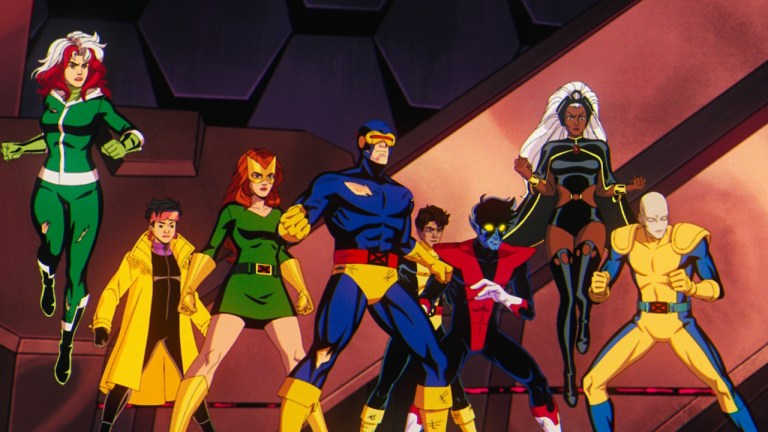X-Men: The Animated Series Almost Didn’t Survive Season 1
Like the characters it depicts, X-Men: The Animated Series faced down extermination during its first season.

X-Men ’97 just finished its first season, one of the best things the MCU has ever released. Yet, way back in 1992, Fox Kids almost killed its predecessor before it had a chance to evolve.
In the new documentary special Assembled: X-Men ’97, three of the chief creatives on X-Men: The Animated Series reveal their struggles getting the show off the ground. Producer and director Larry Houston recalls working under Marvel Productions president Margaret Loesch, who always championed the X-Men throughout the ’80s, resulting in misfires like Spider-Man and His Amazing Friends or Pryde of the X-Men but no ongoing series. When Loesch took a role as head of Fox Children’s Network, she brought Houston with her and gave him his shot, with one caveat.
“The folks above her didn’t believe X-Men was gonna do anything,” says writer Julia Lewald, who, along with her husband Eric, worked as a writer on the original show. “We’ll give you 13 episodes, but that’s it,” Fox’s higher-ups told Loesch, warning that she’d be out of a job if it failed.
The Lewalds, Houston, and their co-creators produced a season of high melodrama superhero action, pulled directly from the Jim Lee-drawn comics of the era. “But after 13 episodes, we were all let go,” explained Julia. “The entire creative staff was let go in July, August, when we finished our work,” continued Eric. “And then in January when it premiered, suddenly it was this big number one hit.”
While the Lewalds can look back at the turnaround with a wry smile now, it’s easy to see why Fox had such low expectations for the X-Men. Marvel’s first foray into animation was the 1966’s The Marvel Super Heroes, which added flat voice-over and stiff animation to panels drawn by regulars such as Jack Kirby, Steve Ditko, and Don Heck. In the decades that followed, Marvel tried making cartoons starring the Hulk, the Fantastic Four, and Spider-Man, but only Spidey lasted more than a single season.
Even after the first episodes started airing, the creative team had no standard by which to judge the show’s popularity. Without internet sites or social media to share reactions, both the network and the creatives had to wait until ratings came in. “We were not aware of what’s going on out in the world, with folks watching this and falling in love with it,” said Eric Lewald. That is, until Julia Lewald asked an executive about any fan mail that Fox might have been receiving about X-Men. “And she took me into a hallway, and those big milky USPS cartons that mailmen carry … it was full and stacked all the way down the hall and back.”
Realizing that they actually had a hit on their hands, Fox Kids tried to gather the production team together again for more seasons. Although some couldn’t return, enough did come back to create four more seasons of the series.
According to Houston, part of the success comes from the elevated drama and complexity that made X-Men stand out from other cartoons of the time. “Back in the ’90s, it was either Scooby-Doo or Superfriends, that was the standard,” explained Houston. “We wanted to make sure that when kids saw ‘Night of the Sentinels I and II,’ they could tell this was not the usual show they’re used to watching.” Houston points to elements such as Morph’s death in the pilot and even the peril Jubilee faces while being chased by the Sentinels as clear distinctions from the standard Saturday morning fare.
Of course, that level of storytelling came from the comics that inspired the show. But it took a special approach to translate the comics, famously complicated during the Chris Claremont era, into something that general audiences could appreciate.
Part of that mature storytelling comes from the comic books that inspired it. “Back in the ’90s, when writers were brought into work on the show, they knew nothing about the X-Men,” laughed Houston. “And I knew too much!” Rather than create friction, that combination allowed the groups to gel and remix lore-heavy bits about alternate realities and clones into viewer-friendly action and drama. “It was kind of a great balance because they knew how to write great character dramas, and I knew all about who liked this one, and who didn’t like this one, who hated this one, who’s a brother, sister, all that stuff.
Those following in the steps of X-Men: The Animated Series honor that legacy. “The OG show leaned into the prejudice,” said director Jake Castorena. “It didn’t shy away from it, but it also didn’t dumb it down or treat the audience like a kid. It told stories … For us to be a successor, we got to carry that DNA in.”
With its combination of timely messages and deep-lore dives, it’s clear that X-Men ’97 has achieved that goal, carrying on the work of the original show for a new generation. In the end X-Men: The Animated Series got so much more than additional seasons. It has a true legacy.
X-Men ’97 is now streaming on Disney+.
